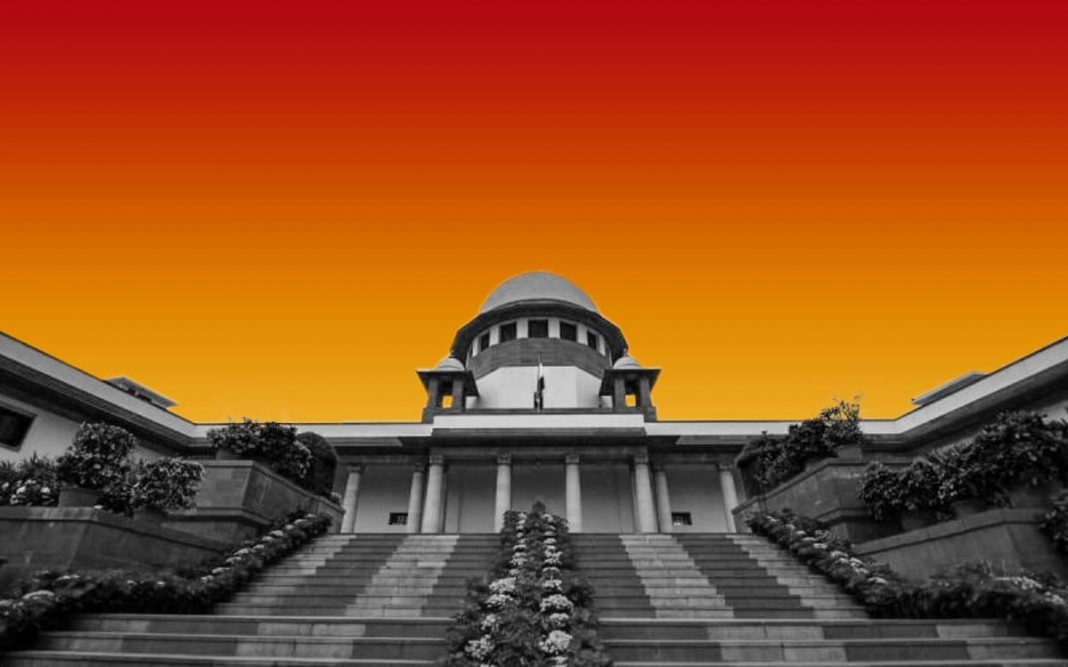The Supreme Court on Tuesday reserved its verdict in the plea filed by a former woman judicial officer from Madhya Pradesh who had levelled sexual harassment charges against a High Court judge and had resigned after a transfer order was passed by a full court bench of the High Court.
The bench of Justices L. Nageswara Rao and B.R. Gavai heard the arguments of Solicitor General Tushar Mehta and Senior Advocate Indira Jaising, who appeared for the petitioner.
SG Tushar Mehta submitted that the petitioner had not challenged the finding of the three-member committee, which was unable to substantiate the allegations of sexual harassment and the committee was unable to establish the same. On the issue of the transfer, the committee called the transfer irregular and you cannot quit your job for an irregular transfer.
He further argued that if the judicial officer was tormented by the transfer, she could have challenged it, but she chose not to do so and an impulsive decision by the officer does not warrant a finding of the top court. Mehta also pointed to the fact that all the allegations were levelled after resignation. According to Mehta, the test to be applied to check coercion should be a ‘reasonable man test’ and not from the perspective of an egoistic individual who gets offended very easily.
Senior Advocate Indira Jaising submitted that transfer is bad in law, it can be set aside by the court. She further argued that the transfer order was discriminatory and arbitrary. Jaising refuted the submission of SG Mehta stating the petitioner need not prove that the High Court intended her to resign.
Referring to the report furnished by an inquiry panel set up by the Rajya Sabha, Jaising claimed that the committee has not opined that there was no sexual harassment but that there was no proof that there was nexus between the sexual harassment and resignation. Page 394 paragraph 63 of the report of inquiry panel: “The crucial question for interpretation is whether the respondent judge interfered with the transfer of the petitioner. Second question for interpretation is whether this interference is to victimize the petitioner for not heeding to his immoral demands. The coincidence of call detail, records between the respondent judge and Justice Menon who was heading the transfer committee in time and space and rapidity in proceeding with the transfer of the complainant and the quick rejection of her representative are suggestive of the respondent judge’s interference.”
Indira Jaising: “Mr. Mehta’s seriously advanced proposition today in writing, is nothing short of male chauvinism and stereotyping of very responsible judicial officer who has had a very distinguished record of service.”
Referring to the SG’s argument that a woman with an unproven sexual harassment case should not be reinstated, Jaising pointed out that this was an argument of alarm and ill lies in the mouth of this institution.
Indira Jaising: “What? Mr. Mehta, what is to stop her taking this up at any stage of her life?”
Following an inquiry in 2017, the High Court judge was given a clean chit in the sexual harassment case but the woman judicial officer’s sudden transfer was held to be unjustified, prompting her to seek her job back through a petition in the top court.
Her petition cited the report submitted by the inquiry panel constituted by the Rajya Sabha into her accusations of sexual harassment against a high court judge, who has since retired.
The inquiry panel was set up in 2015 after 58 members of the Rajya Sabha gave a notice to move a motion to impeach the High Court judge.
The report by the committee, comprising Supreme Court judge Justice R. Banumathi (now retired), the then Chief Justice of the Bombay High Court Manjula Chellur, and Senior Advocate K.K. Venugopal (now Attorney General), was tabled in the Rajya Sabha in December 2017.
The three-member committee in its report had concluded, “that it emerges that the decision of the transfer committee to transfer the complainant from district Gwalior to district Sidhi was based on the recommendation sent by the then district judge Kamal Singh Thakur [JIC W. No. 4] who had his own reasons to believe that the complainant (i) was habitual of making unnecessary complaints regarding her staff and non-allocation of substitute staff; (ii) she did not use to behave cordially with other Judges, especially with the Civil Judges; (iii) she made anonymous complaints against the District Judge and other Judges publicly stating that unlike the previous District Judge, administrative skills of the present District Judge were not adequate, and thus, she should be transferred to some other place. The transfer committee committed an irregularity on solely relying on the recommendation of District Judge Kamal Singh Thakur and without making any verification or enquiring on the same, was not justified in transferring the complainant in mid-session. Equally unjustifiable was the rejection of her representations. Transfer of the complainant also does not seem to be in the interest of the administration and, in our view, it was punitive.”


